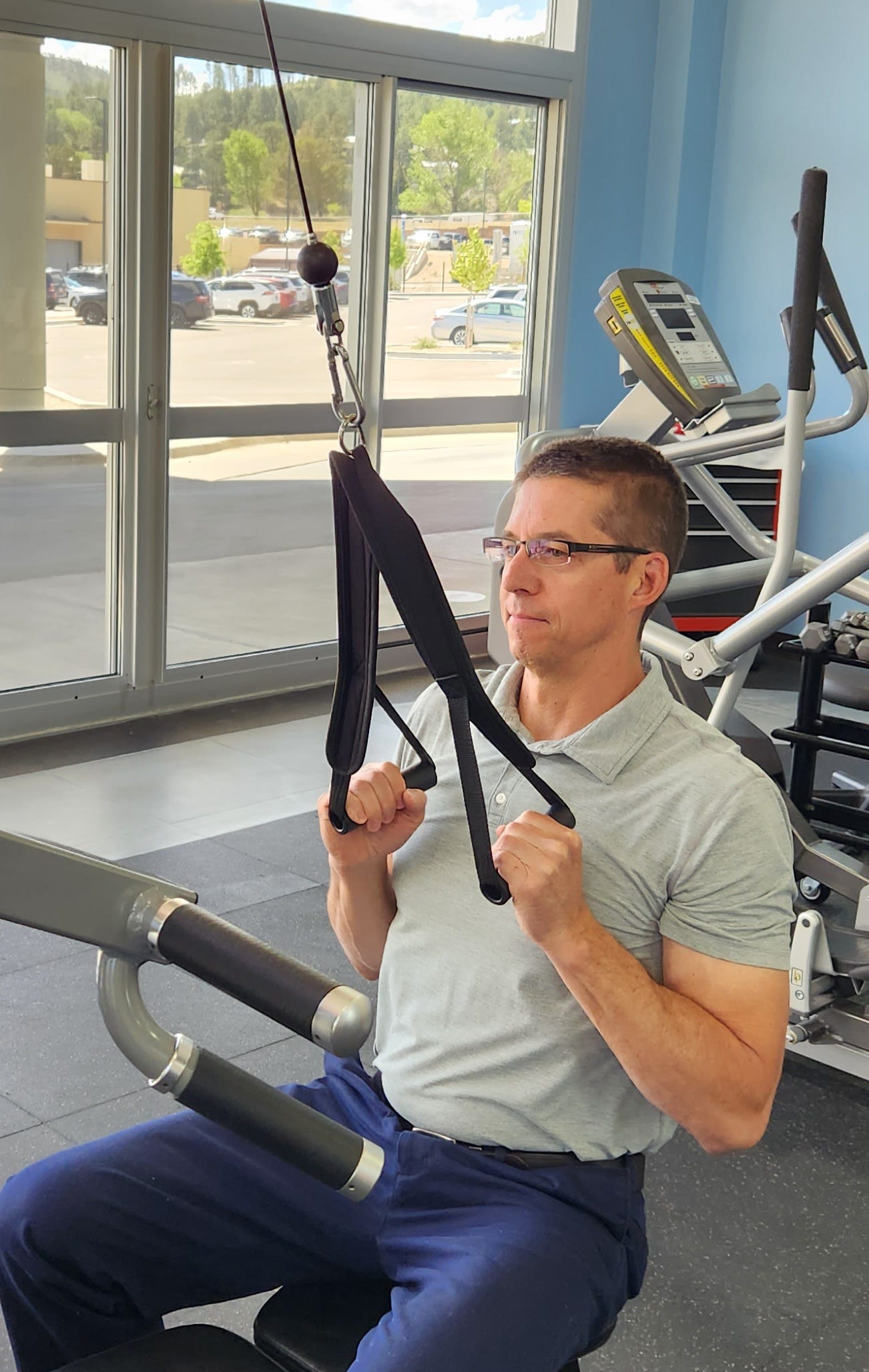Rotator cuff muscles are less important than the latissimus for shoulder health
This is not medical advice.
Yeah, that’s a wonky title. Search engines work better with rotator cuff listed first. The title is sure to cause a shit storm. Physical Therapists’ heads are exploding. “You can’t say that without scientific, double blind studies performed at the exact same time, with an atomic clock, on opposite ends of the Earth, performed by paternal twins!” Yes, I get it. I love the NSCA, and all the scientific studies. I love science and objectivity. We can still talk about the possibility. This is not proven. Maybe it will lead to studies.
I have some anecdotal evidence, accumulated over 50,000 hours of direct patient time, and after seeing thousands of shoulder cases. Sometimes we discuss one case study at a time (?) Does experience count for nothing?
Here are some things to consider;
We don’t see body builders with impingement syndrome.
On average, we typically do not see this type of patient population for shoulder problems. Some of them might be on special pharmaceuticals, but I’m not talking about that group. We can also include naturals, and anyone who is super fit with a resistance training history.
We might see a few, but they are lateral raising 40-80lb dumbells, and are pushing to the extremes, where they couldn’t differentiate between “feeling the burn” and tendonitis.
I never saw old school body builders perform traditional rotator cuff exercises, yet you can see massive RTC definition. Why? Because people with a resistance training history perform large quantities of heavy rows, pull ups, and lat pull downs. Their anchor system is massive. Shoulder health is more about the poor leverage of the shoulder joint.
When you perform heavy lifts, and to increased fatigue, the body will automatically recruit more surrounding muscle fibers (RTC) to assist the pull.
Try these experiments
You are stretching a shoulder with impingement, overhead in supine. When they lower the arm back to the table, this is usually very painful. Next time provide gentle manual resistance as they extend the arm all the way back down to the table. Most of the time, they will have less pain. They were firing the lats.
Lat pulls decrease impingement. Why is your shoulder patient having less impingement pain, even though their arms are over their head, when performing a lat pull down? Because the latissimus muscle is pulling the humerus, and head down in the socket, clearing the ligamentus/bony bridge, similar to the RTC.
What were our latissimus muscles designed for?
I am going to argue they are the giant anchor for our shoulder mechanics, not as much the RTC. Yes the RTC is extremely important. I love evolutionary biology theories. If we were designed to hang from branches, are the RTC muscles big and strong enough to counter hold the ball in the socket, with our body weight? No. If you look at the origin of the lats, they are a massive swath of muscle across our lower back, down to the pelvis. I’ve never seen a latissimus tear in rehab, strains maybe. Seen thousands of RTC tears.
Sometimes you can avoid RTC surgery with improved latissimus strength and tone
I’m still having my patients perform all the typical RTC exercises. I am also adding lat pull downs to increase total strength. The lat pull is the counter balance anchor to all the poor leverage the deltoid is trying to manage.
I usually have patient’s alternate between an overhead exercise, and a pulling or pulling down exercise. This keeps the ball in socket balanced, and improves rotational mechanics. How many times do we see a shoulder in the clinic that is struggling to elevate instead of depressed rotation? Quality matters in decreasing impingement.
If the patient has had RTC surgery, I add light lat pull motions at 10-12 weeks post op. Only light resistance where they can perform at least 20 reps in a set. These are not in the protocols, and I have never seen a problem. The latissimus muscles were not the ones repaired, and are massive.
If the patient has not had surgery, and only impingement, latissimus strengthening can be more aggressive. If you ask the patient about their pain while performing a lat pull, that will help guide your decision making.
Is the health industry interested in studying ways to avoid surgery? Research is funded.
Not asking people to stop RTC strengthening. Yet you have nothing to lose by adding lat pull downs to your RTC shoulder routine.



Brilliant deduction. I've been working out for over 30 years and I have to agree with your assessment. Studies are important, but practical experience usually gives more comprehensive insight. The lats are an anchor for the shoulder and so should even be included in shoulder injury therapy with those having weak lats. Thanks for this article.